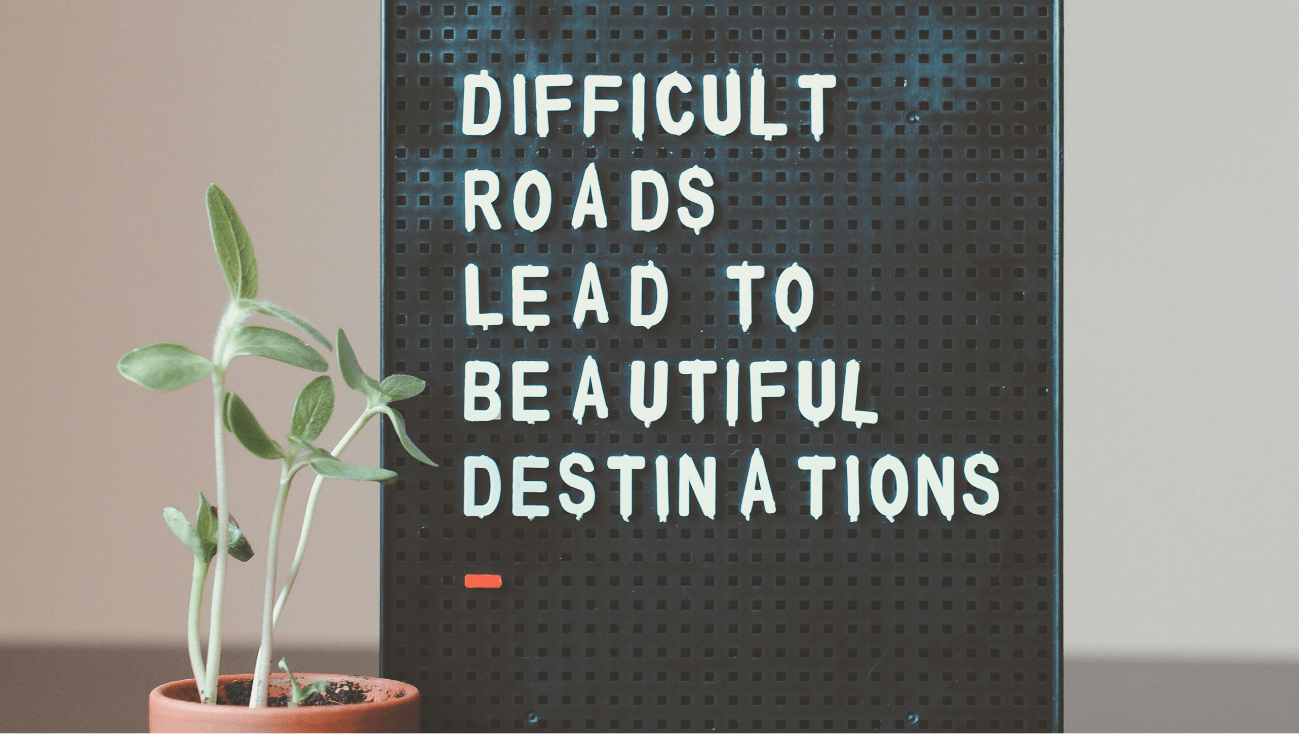Individual Therapy | 3 min read | 2024-10-28 | 1092 Views
Finding Strength in Gratitude: How Appreciation Enhances Mental Health
Gratitude has proven to be a powerful tool for enhancing mental health, with research showing its benefits for both well-being and resilience. By fostering an awareness of the positive aspects of life, gratitude reduces stress, boosts happiness, and promotes a sense of belonging. This positive shift has physiological effects, like lowering cortisol and increasing serotonin, which aid in mood regulation. Studies have shown gratitude to reduce risks of PTSD, depression, and social isolation, helping individuals, including veterans and single mothers, to build resilience amid challenges. Simple practices, such as noting daily gratitude, can lead to an optimistic, balanced outlook on life.

Gratitude has gained recognition as a powerful influence on mental health, with growing evidence showing its positive effects on both psychological well-being and resilience. At its core, gratitude is the practice of acknowledging and appreciating the good aspects of life, be they large or small. Research in psychology reveals that gratitude is more than a pleasant feeling; it actively promotes mental health by reducing stress, increasing happiness, and fostering a sense of belonging.
Gratitude helps counter this by encouraging people to pay attention to positive aspects in their lives, which can lead to a balanced and hopeful outlook. This shift has real physiological effects, lowering cortisol levels, which is associated with stress reduction. Additionally, studies have shown that practicing gratitude can lead to increased serotonin production, which plays a vital role in regulating mood2. For instance, a study in the US veteran population depicted how Higher dispositional gratitude was associated with decreased risk for lifetime history of post-traumatic stress disorder (PTSD), major depressive disorder (MDD), social phobia, nicotine dependence, and suicide attempts. Moreover, it improved current lifestyle and decreased risk of current mental challenges experienced by the veteran population1.
Additionally, gratitude also fosters stronger social connections. When individuals express gratitude, they often feel more connected and supported by those around them. This sense of belonging helps people feel less isolated and more resilient to life’s challenges. As a matter of fact, qualitative interviews revealed both challenges and strengths of single mothers during the COVID-19 pandemic. A study assessed single mothers' mental health during COVID-19, using a risk and resilience framework to explore how life stressors and gratitude influenced mental health outcomes. Findings were consistent with the idea that gratitude helps individuals find meaning and coherence in life3.
Overall, incorporating gratitude into daily routines can be as simple as writing down three things one is thankful for each day or sharing appreciation with others. Over time, these small acts contribute to an overall improvement in mental health, creating a mindset rooted in optimism and resilience4. Gratitude doesn’t eliminate life’s challenges, but it equips people with a tool for facing them with a more balanced, positive perspective.
References
- National Aliance on mental ilness. (2021, January 8). The impact of gratitude on mental health. NAMI California. https://namica.org/blog/the-impact-of-gratitude-on-mental-health/
- McGuire, A. P., Fogle, B. M., Tsai, J., Southwick, S. M., & Pietrzak, R. H. (2021). Dispositional gratitude and mental health in the U.S. veteran population: Results from the National Health and Resilience Veterans Study. Journal of Psychiatric Research, 135, 279–288. https://doi.org/10.1016/j.jpsychires.2021.01.020
- Taylor, Z. E., Bailey, K., Herrera, F., Nair, N., & Adams, A. (2022). Strengths of the Heart: Stressors, Gratitude, and Mental Health in Single Mothers During the COVID-19 Pandemic. Journal of Family Psychology, 36(3), 346–357. https://doi.org/10.1037/fam0000928
- Sherman, A. C., Salsman, J. M., Park, C. L., Messias, E. L., Williams, M. L., Amick, B. C., Hudson, T. J., & Simonthon-Atchley, S. (2022). Relationships Between Gratitude and Mental Health Difficulties During the COVID-19 Pandemic in a Southern Region of the United States. European Journal of Mental Health, 17(2), 118–130. https://doi.org/10.5708/EJMH.17.2022.2.12
Other articles
Restoring Balance: How Sleep Impacts Mental Health
Sleep is vital for both physical and mental health, yet many people suffer from chronic sleep deprivation due to stress, work, and technology use. For adolescents and young adults, the rise of electronic devices and social media has contributed to declining sleep quality, which is linked to increasing mental health issues like anxiety and depression. Studies show that poor sleep affects emotional regulation, stress levels, and cognitive function. Addressing sleep problems through therapy or lifestyle changes is essential for improving mental well-being and preventing further mental health challenges.
Finding Strength in Gratitude: How Appreciation Enhances Mental Health
Gratitude has proven to be a powerful tool for enhancing mental health, with research showing its benefits for both well-being and resilience. By fostering an awareness of the positive aspects of life, gratitude reduces stress, boosts happiness, and promotes a sense of belonging. This positive shift has physiological effects, like lowering cortisol and increasing serotonin, which aid in mood regulation. Studies have shown gratitude to reduce risks of PTSD, depression, and social isolation, helping individuals, including veterans and single mothers, to build resilience amid challenges. Simple practices, such as noting daily gratitude, can lead to an optimistic, balanced outlook on life.
Understanding Burnout: How to Recognize, Prevent, and Recover
Burnout is a widespread issue affecting people across various life stages, from students to professionals to parents. Originating from intense stress and high expectations, burnout can result in chronic exhaustion, diminished motivation, and feelings of inadequacy. In school, high expectations and social pressures contribute to academic burnout, particularly among older students. For parents, balancing multiple responsibilities can lead to emotional exhaustion and decreased satisfaction, affecting both themselves and their families. Addressing burnout requires setting priorities, seeking support, and establishing habits that promote mental well-being
Breaking the Stigma: Why We Need to Talk About Mental Health?
Mental health is as vital as physical health, yet stigma often hinders open dialogue and help-seeking, especially in workplaces and schools where it can impact well-being and productivity. Many lack awareness of mental health prevention, early signs, and available support, further deepening the issue. Effective interventions, such as education and social contact, show promise in reducing stigma and fostering understanding. By sharing stories, listening, and treating mental health with respect, we can build a compassionate culture where everyone feels supported and valued. Let’s prioritize mental health for a stronger, more inclusive society.
Cognitive Reappraisal: Turning Challenges into Growth Opportunities
Cognitive reappraisal, the practice of reframing thoughts to alter their emotional impact, is a powerful tool for improving mental well-being. By challenging negative interpretations and adopting balanced perspectives, this strategy reduces anxiety, depression, and stress while fostering resilience. Research highlights its role in easing psychological distress during tough times, such as the COVID-19 pandemic, by promoting healthier coping mechanisms. Though we can’t always control life’s challenges, cognitive reappraisal empowers us to control our responses, turning negativity into an opportunity for growth and strength. A small shift in perspective can lead to significant improvements in mental health.

Mental Health Support for Refugees Through the IFHP
Discover how Nazca Health provides essential mental health support for refugees through the Interim Federal Health Program (IFHP), addressing mood, anxiety, and PTSD.

Post-Traumatic Growth: Finding Strength and Meaning After Adversity
Discover how post-traumatic growth (PTG) can transform adversity into resilience, meaning, and personal growth. Learn the science, benefits, and ways to foster PTG after trauma.
Dopamine Detox: How to Reset Your Brain for Focus, Motivation, and Clarity
Discover how a dopamine detox can help reset your brain, reduce overstimulation, and improve focus, productivity, and well-being. Learn the science, benefits, and practical steps to start your own detox.
Can AI Replace Therapists? Exploring the Future of Mental Health Care
Can AI replace therapists in mental health care? Discover the advantages, limitations, ethical concerns, and the role of artificial intelligence in supporting (but not replacing) human therapists.
The Loneliness Epidemic: Causes, Consequences, and Solutions
The loneliness epidemic is a growing public health concern worldwide. Learn about its causes, health impacts, and practical solutions to combat loneliness in today’s society.









